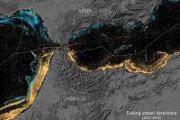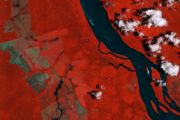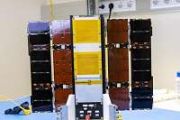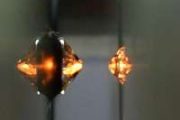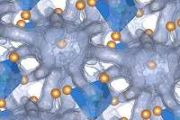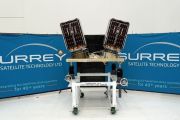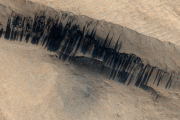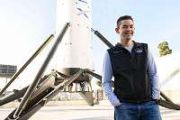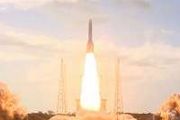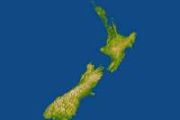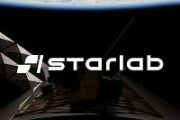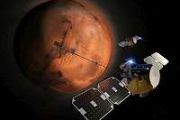
Copernical Team
Where do high-energy particles that endanger satellites, astronauts and airplanes come from?
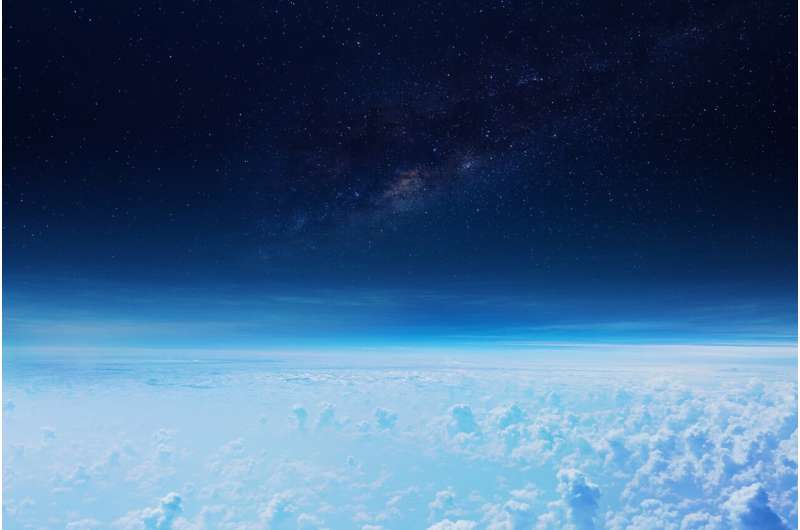
For decades, scientists have been trying to solve a vexing problem regarding the weather in outer space: At unpredictable times, high-energy particles bombard the Earth and objects outside the Earth's atmosphere with radiation that can endanger the lives of astronauts and destroy satellites' electronic equipment. These flare-ups can even trigger showers of radiation strong enough to reach passengers in airplanes flying over the North Pole. Despite scientists' best efforts, a clear pattern of how and when flare-ups will occur has remained enduringly difficult to identify.
This week, in a paper in The Astrophysical Journal Letters, authors Luca Comisso and Lorenzo Sironi of Columbia's Department of Astronomy and the Astrophysics Laboratory, have used supercomputers to simulate when and how high-energy particles are born in turbulent environments like that on the atmosphere of the sun. This new research paves the way for more accurate predictions of when dangerous bursts of these particles will occur.
"This exciting new research will allow us to better predict the origin of solar energetic particles and improve forecasting models of space weather events, a key goal of NASA and other space agencies and governments around the globe," Comisso said.
ESA Boost! for RFA One Launch Services
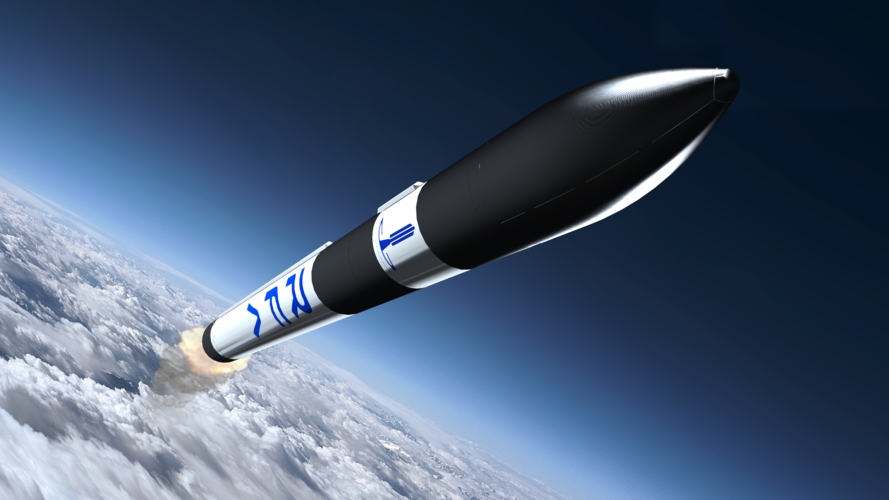
Rocket Factory Augsburg (RFA), a German startup developing the three-stage RFA One orbital launch vehicle designed to operate at a high cadence, has received a contract worth €11.72 m from ESA's Boost! commercial space transportation services programme.
Ariane 5 launches Europe’s tallest communication satellite
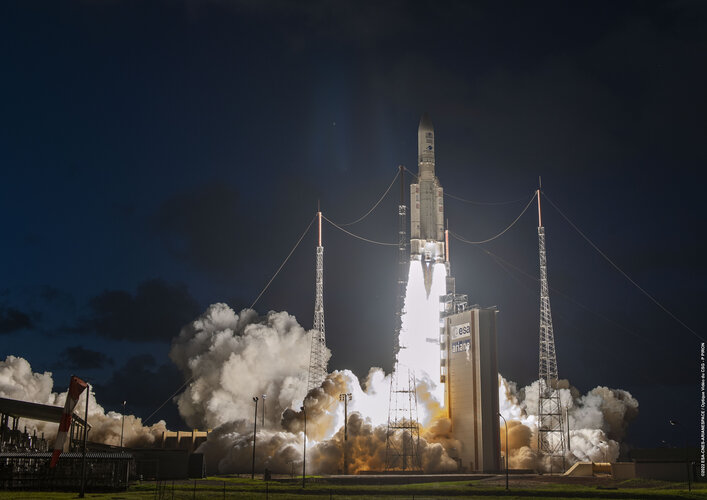
The fourth Spacebus Neo satellite to benefit from ESA’s Neosat programme has launched into space on board the second Ariane 5 launch mission of 2022.
First Eurostar Neo satellite ready to ship
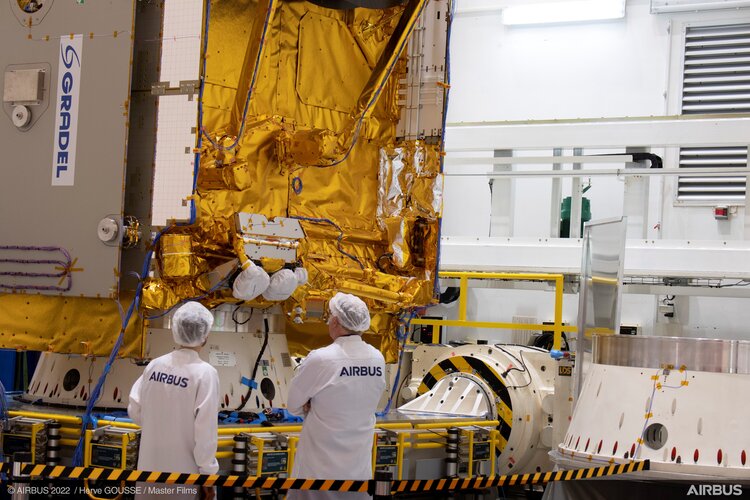
The first satellite to be built under ESA’s Eurostar Neo programme stands ready to be shipped to its launch site.
Media invitation: International Astronautical Congress 2022 in Paris
Press Release N° 46–2022
The International Astronautical Congress 2022 (IAC) will be hosted in Paris, France, from Sunday to Thursday, 18-22 September 2022, at the Paris Convention Centre (1 place de la Porte de Versailles, 75015 Paris).
Spaceflight signs with NewSpace India to launch Astrocast IoT satellite into orbit
 Spaceflight, the leading global launch services provider, has announced it will launch four Astrocast 3U spacecraft aboard India's Polar Satellite Launch Vehicle (PSLV) mission under a commercial arrangement with NewSpace India Limited (NSIL). This mission, scheduled for October 2022, will launch from Sriharikota, India's Satish Dhawan Space Center, carrying the Astrocast spacecraft as a co-pass
Spaceflight, the leading global launch services provider, has announced it will launch four Astrocast 3U spacecraft aboard India's Polar Satellite Launch Vehicle (PSLV) mission under a commercial arrangement with NewSpace India Limited (NSIL). This mission, scheduled for October 2022, will launch from Sriharikota, India's Satish Dhawan Space Center, carrying the Astrocast spacecraft as a co-pass Vestigo Aerospace raises $375K in seed funding to spur deorbit systems
 Vestigo Aerospace, a space technology company focused on deorbit systems, has closed a seed funding round with an investment of $375,000 from Manhattan West, a Los Angeles-based strategic investment firm. NASA will provide a 1:1 match of Manhattan West's investment through a Small Business Innovative Research Phase II-Extended (SBIR Phase II-E) contract.
The seed funding and the matching N
Vestigo Aerospace, a space technology company focused on deorbit systems, has closed a seed funding round with an investment of $375,000 from Manhattan West, a Los Angeles-based strategic investment firm. NASA will provide a 1:1 match of Manhattan West's investment through a Small Business Innovative Research Phase II-Extended (SBIR Phase II-E) contract.
The seed funding and the matching N Ramon and Kythera partner to deliver autonomous communications payload solutions
 Ramon.Space, the leader in space-resilient computing infrastructure, and Kythera Space Solutions (Kythera), the leader in dynamic management systems for next-generation payloads and SATCOM networks, have partnered to deliver highly dynamic and flexible communications payload solutions. This partnership leverages Kythera's Operating System to manage and optimize Ramon.Space's advanced Space Compu
Ramon.Space, the leader in space-resilient computing infrastructure, and Kythera Space Solutions (Kythera), the leader in dynamic management systems for next-generation payloads and SATCOM networks, have partnered to deliver highly dynamic and flexible communications payload solutions. This partnership leverages Kythera's Operating System to manage and optimize Ramon.Space's advanced Space Compu Airbus to provide satellite communications for Armed Forces of Czech Republic and the Netherlands
 Airbus has signed contracts with the Ministries of Defence of Czech Republic and the Netherlands to provide satellite communications for a 15 year period. The Armed Forces of Czech Republic and the Netherlands will utilise 2 and 3 channels respectively of the Airbus UHF (Ultra High Frequency) military communications hosted payload on-board the EUTELSAT 36D telecommunications satellite scheduled
Airbus has signed contracts with the Ministries of Defence of Czech Republic and the Netherlands to provide satellite communications for a 15 year period. The Armed Forces of Czech Republic and the Netherlands will utilise 2 and 3 channels respectively of the Airbus UHF (Ultra High Frequency) military communications hosted payload on-board the EUTELSAT 36D telecommunications satellite scheduled SciTec awarded US Space Force contract for mission data processing application provider
 SciTec, Inc. was awarded a $272M contract by U.S. Space Force Space Systems Command (SSC) for Mission Data Processing Application Provider (MDPAP) to deliver critical applications for the Space Force's missile warning mission as part of the Future Operationally Resilient Ground Evolution (FORGE) program.
The FORGE program supports the continued operations of legacy Space Based Infrared Sys
SciTec, Inc. was awarded a $272M contract by U.S. Space Force Space Systems Command (SSC) for Mission Data Processing Application Provider (MDPAP) to deliver critical applications for the Space Force's missile warning mission as part of the Future Operationally Resilient Ground Evolution (FORGE) program.
The FORGE program supports the continued operations of legacy Space Based Infrared Sys 





